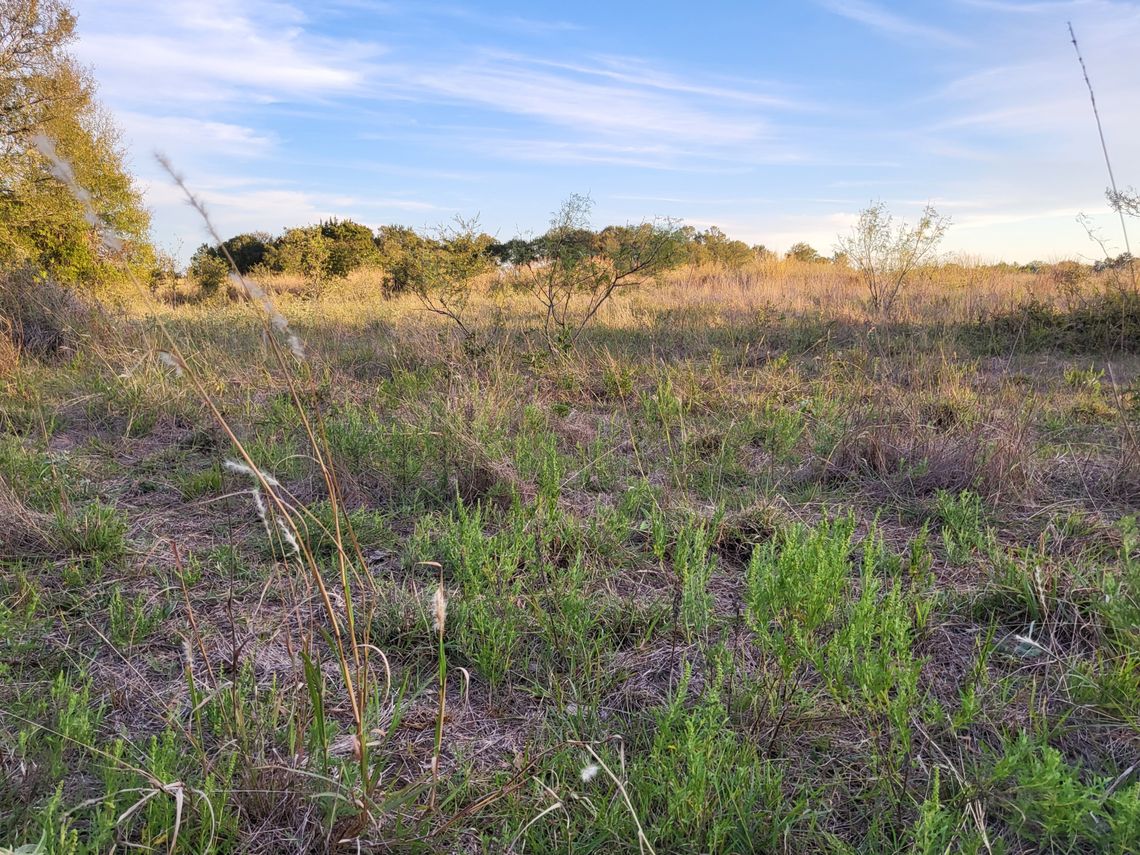Under a blanket of stars nearly untouched by light pollution, dozens of people in parked cars or sitting on lawn chairs basked in the glow reflecting from an inflatable movie screen, where a projector cast a series of short documentaries about a variety of topics in nature and wildlife conservation. Behind the dialog from the films, a gentle breeze whispered through the sparse trees and wide expanse of grassland.
Visitors to this nature preserve didn’t have to look far to find the principles from one of the short films 一 detailing efforts to protect the monarch butterfly in upstate New York 一 put into action. This ranch is slowly being reverted from non-native grazing grass back to its natural prairie vegetation, in part to help support the monarch butterfly.
Last year was Pines and Prairies Land Trust’s second Wild and Scenic Film Festival, taking place on Saturday, Oct. 22, at Billig Ranch, a nature preserve near Paige. Pines and Prairies is a Bastrop-based nonprofit organization that, along with managing two wildlife preserves and a nature park, works with landowners to put restrictions on their deeds that protect wildlife on their land.
Pines and Prairies’ instance of the Wild and Scenic Film Festival is part of an international program by the same name. The original Wild & Scenic Film Festival began in 2003 by the South Yuba River Citizens League, a nonprofit river conservation organization from California near the Sierra Nevada mountains. The main festival screens over 100 films each January, after which the organization lets other groups across the country host their own film festivals, such as Pines and Prairies’ event in October.
As part of the film program, Pines and Prairies chose 12 short films from a list compiled by the Wild & Scenic Film Festival organization. The short documentaries shown at Pines and Prairies' film screening ranged from the comedic, such as the story of a cormorant’s caretakers teaching the bird how to pickpocket, to heartwarming, such as a documentary about a woman-led elephant orphanage in Kenya, to even the dire, such as a short film chronicling a Native American tribe struggling to adapt to the loss of fish in their river due to a dam upstream. Throughout the evening, the audience bounced between mirthful laughter, awe and quiet contemplation.
This is Part 1 of Julianne Hodge’s story. See Part 2 in a future edition.
.png)








